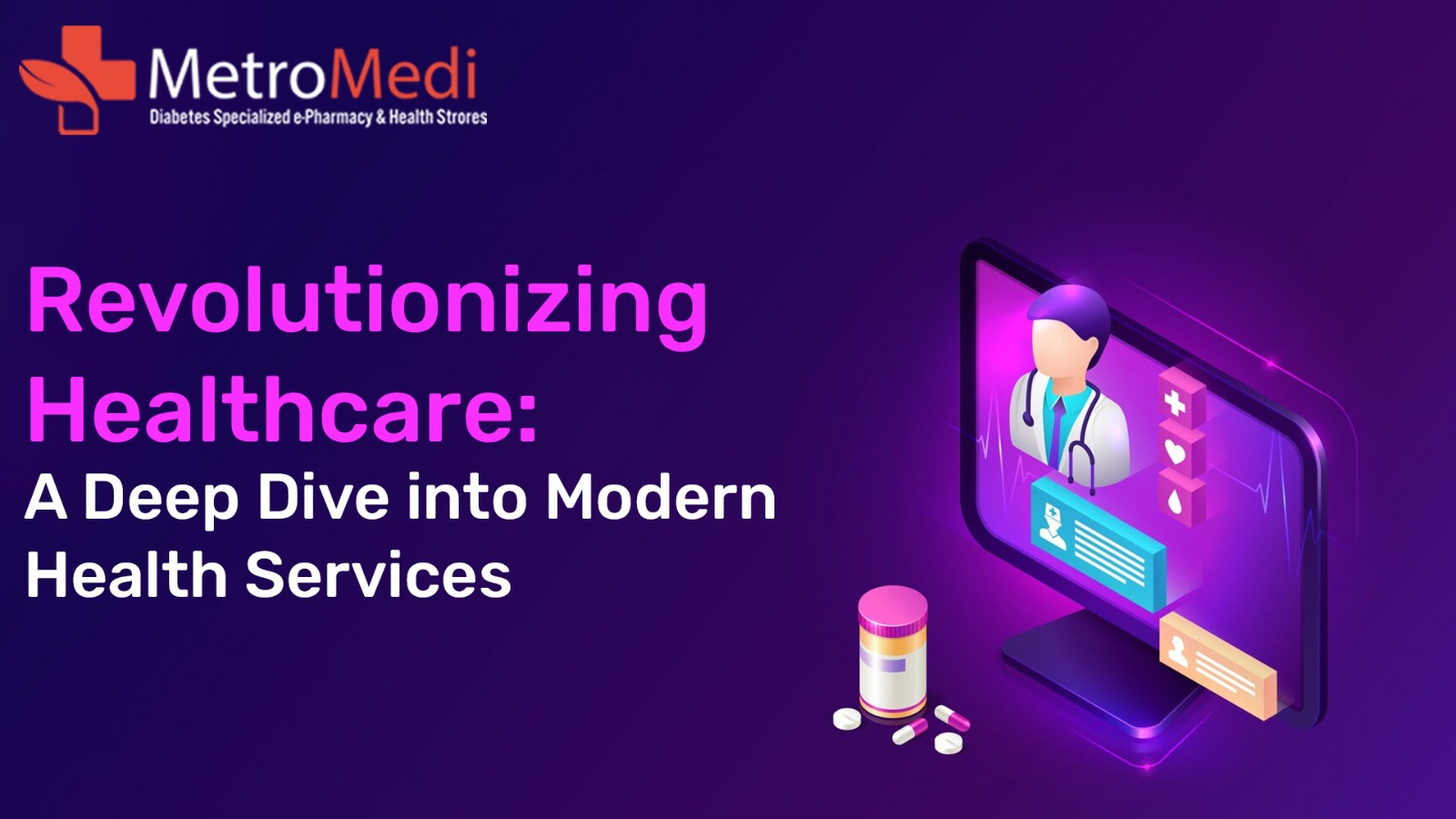Introduction
In the ever-evolving landscape of healthcare, the last few decades have witnessed a revolutionary transformation driven by technological advancements and innovative approaches. The integration of modern technologies, data analytics, and artificial intelligence (AI) has paved the way for a more personalized, efficient, and accessible healthcare system. This blog will delve into the various aspects of how modern health services are revolutionizing the way we approach healthcare.

- Telemedicine: Bridging the Distance Gap
One of the most significant advancements in healthcare is the rise of telemedicine. With the advent of high-speed internet and sophisticated communication technologies, patients can now consult with healthcare professionals remotely. Telemedicine not only improves access to medical expertise but also enhances the efficiency of healthcare delivery. Patients in remote areas or those with mobility challenges can receive timely and quality care, breaking down geographical barriers.
- Wearable Technology and Remote Monitoring:
The integration of wearable technology into healthcare has opened up new avenues for proactive and preventive care. From smartwatches that monitor vital signs to fitness trackers that encourage a healthy lifestyle, wearable devices provide valuable data for both patients and healthcare providers. Remote monitoring of patients with chronic conditions allows for early detection of issues, reducing hospitalizations and improving overall health outcomes.
- Big Data Analytics in Healthcare:
The healthcare industry generates an enormous amount of data daily, ranging from patient records to medical research. Big data analytics plays a crucial role in processing and analyzing this data to derive meaningful insights. Predictive analytics can help identify potential outbreaks, personalize treatment plans, and streamline hospital operations. Moreover, the integration of electronic health records (EHRs) facilitates seamless information exchange among healthcare providers, leading to more coordinated and patient-centric care.
- Artificial Intelligence in Diagnostics and Treatment:
Artificial intelligence has proven to be a game-changer in healthcare, particularly in diagnostics and treatment. Machine learning algorithms can analyze medical images, such as X-rays and MRIs, with incredible accuracy, aiding in early detection of diseases. AI-driven decision support systems assist healthcare professionals in making informed choices about treatment plans, improving precision and reducing the risk of errors.
- Personalized Medicine:
The era of one-size-fits-all healthcare is gradually giving way to personalized medicine. Advances in genomics and molecular biology enable healthcare providers to tailor treatments based on an individual’s genetic makeup, lifestyle, and environmental factors. This approach not only enhances treatment effectiveness but also minimizes adverse reactions, optimizing the overall patient experience.
- Blockchain for Secure Health Data:
Ensuring the security and integrity of health data is a top priority in modern healthcare. Blockchain technology offers a decentralized and secure method of storing and sharing health records. This not only protects sensitive information from cyber threats but also allows patients to have more control over their own data. The transparency and immutability of blockchain can streamline processes like billing and insurance claims, reducing administrative overhead.
- 3D Printing in Healthcare:
The application of 3D printing in healthcare is revolutionizing the way medical devices, prosthetics, and even organs are produced. Customized implants and prosthetics can be created with precision, improving the fit and functionality for patients. Additionally, researchers are exploring the possibility of 3D printing functional organs, potentially addressing the organ shortage crisis.
- Virtual Reality (VR) in Therapy and Training:
Virtual reality is not just for entertainment; it has found valuable applications in healthcare as well. VR therapy is being used to treat conditions such as anxiety, phobias, and post-traumatic stress disorder (PTSD). Medical professionals also benefit from VR-based training simulations, enhancing their skills and preparing them for real-life scenarios in a controlled environment.
- The Rise of Health Apps and Digital Health Platforms:
Mobile applications and digital health platforms have become integral components of modern health services. From medication reminders to mental health support, these apps cater to various aspects of wellness. Additionally, digital health platforms facilitate communication between patients and healthcare providers, enabling remote consultations, appointment scheduling, and health monitoring.
- Ethics, Privacy, and Regulation in Modern Healthcare:
As healthcare becomes increasingly digital, the need for robust ethical guidelines, privacy protection, and regulatory frameworks becomes paramount. Balancing the potential benefits of technology with ethical considerations and ensuring patient privacy are critical challenges that the healthcare industry must navigate. Striking the right balance will be crucial in building trust among patients and healthcare professionals alike.
Conclusion: Modern health services
The revolutionizing landscape of modern health services brings with it immense potential to improve patient outcomes, enhance accessibility, and streamline healthcare delivery. Telemedicine, wearable technology, big data analytics, artificial intelligence, personalized medicine, blockchain, 3D printing, virtual reality, health apps, and digital platforms collectively contribute to a comprehensive transformation in the way we approach healthcare.
However, it is essential to address the ethical, privacy, and regulatory challenges that come with these advancements. Striking a balance between innovation and responsible implementation will be key to ensuring that the benefits of modern health services are accessible to all while maintaining the highest standards of patient care and data security. As we move forward, the ongoing collaboration between healthcare professionals, technology developers, policymakers, and patients will play a crucial role in shaping the future of healthcare. The journey towards revolutionizing healthcare is an ongoing process, and the possibilities for improvement and innovation are boundless.
